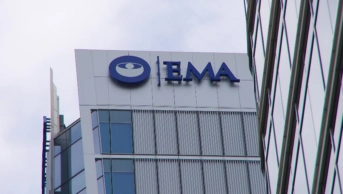
shutterstock.com
At its most recent meeting the European Medicines Agency (EMA) Committee for Medicinal Products for Human Use (CHMP) recommended ten medicines for approval, including one biosimilar and two orphan medicines.
Ocrelizumab (Ocrevus; Roche) for the treatment of adults with relapsing multiple sclerosis and early primary progressive multiple sclerosis; darunavir (Darunavir Krka and Darunavir Krka d.d; Novo mesto), for the treatment of HIV-1 infection; and fulvestrant (Fulvestrant; Mylan), for the treatment of locally advanced or metastatic breast cancer, were among the ten medicines recommended.
Others included the orphan drugs budesonide (Jorveza; Dr. Falk Pharma GmbH), for the treatment of eosinophilic oesophagitis, which was reviewed under EMA’s accelerated assessment mechanism, and letermovir (Prevymis; Merck), which prevents cytomegalovirus reactivation and disease in patients receiving immunosuppressants.
Rurioctocog alfa pegol (Adynovi; Baxalta) also received a positive opinion from the CHMP for the treatment of prophylaxis of bleeding in patients aged 12 years and above with haemophilia A, as did benralizumab (Fasenra; AstraZeneca) for the treatment of severe eosinophilic asthma, and prasterone (Intrarosa; Endoceutics) for the treatment of vulvar and vaginal atrophy in postmenopausal women.
Bevacizumab (Mvasi; Amgen), for the treatment of carcinoma of the colon or rectum, breast cancer, non-small cell lung cancer, renal cell cancer, epithelial ovarian, fallopian tube or primary peritoneal cancer, and carcinoma of the cervix, was the only biosimilar in the list.
Further recommendations
In the meeting the CHMP also re-examined two negative recommendations for the antipsychotic iloperidone (Fanaptum; Vanda Pharmaceuticals) and advanced breast cancer drug etirinotecan pegol (Onzeald; Nektar), adopted during the CHMP’s July 2017 meeting.
The CHMP confirmed its decision to refuse the granting of marketing authorisations for both drugs on the grounds that etirinotecan pegol’s benefit in the treatment of advanced breast cancer that had spread to the brain and other parts of the body had not been sufficiently demonstrated and because of concerns about the adverse effects of iloperidone. There were no new negative opinions on new medicines during the November 2017 meeting.
Furthermore, the committee recommended extensions of indications for four drugs, including cancer drug brentuximab vedotin (Adcetris; Takeda); once-a-day HIV-1 complete treatment elvitegravir/cobicistat/emtricitabine/tenofovir alafenamide (Genvoya; Gilead Sciences); romiplostim (Nplate; Amgen); and cystic fibrosis combination treatment, lumacaftor/ivacaftor (Orkambi; Vertex Pharmaceuticals).
The CHMP also concluded its review of the multiple sclerosis medicine daclizumab (Zinbryta; Biogen Idec) and confirmed further restrictions to reduce the risk of serious liver damage.
Finally, two applications for initial marketing authorisations were withdrawn. These were for bevacizumab (Kyomarc; Amgen), which was intended to be used for the treatment of a number of different cancers, and sirukumab (Plivensia; Janssen-Cilag), which was intended to be used to treat rheumatoid arthritis.
The agenda for this meeting, held from 6 to 9 November 2017, is published on the EMA’s website and the minutes will be published in due course.

